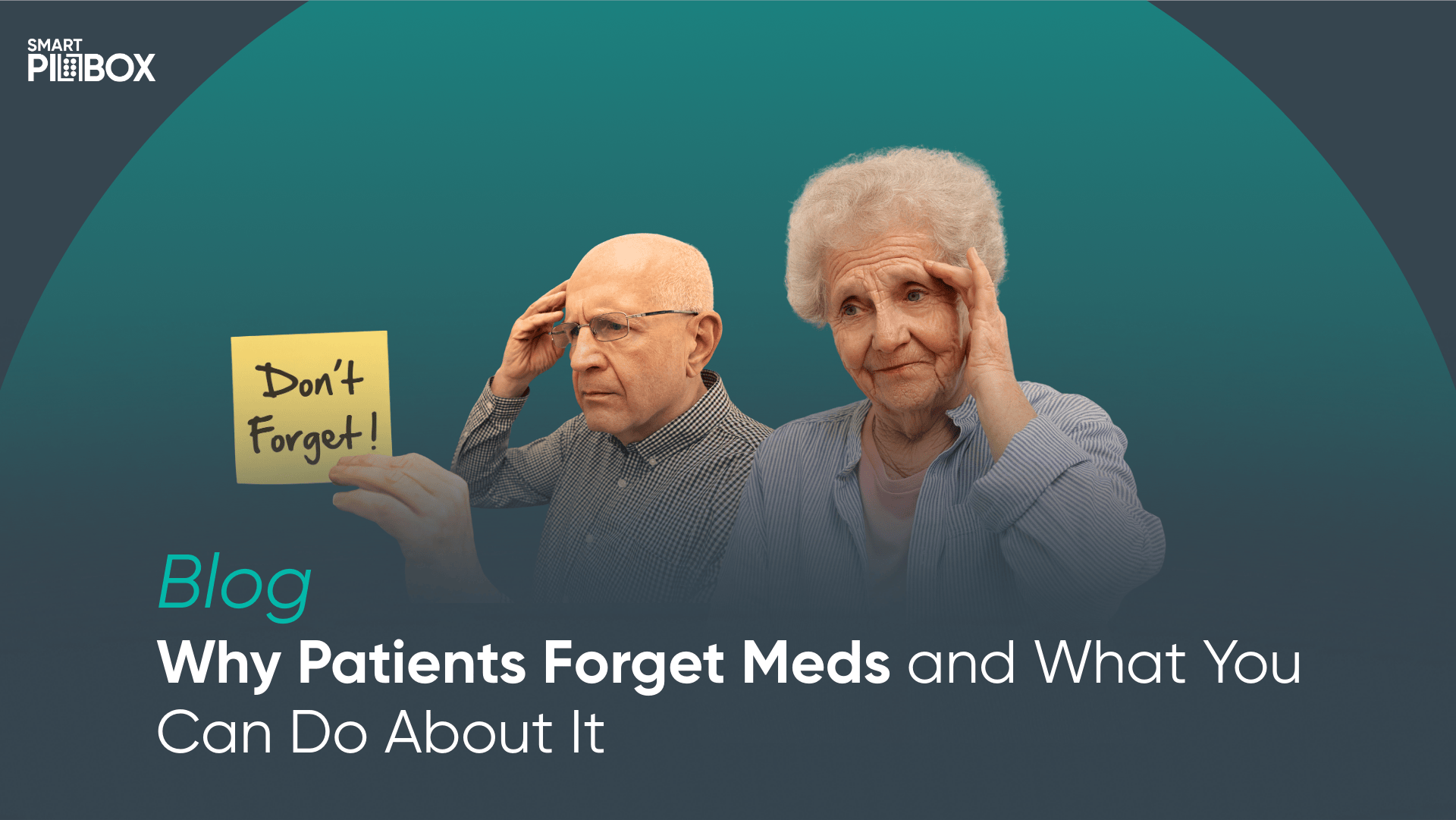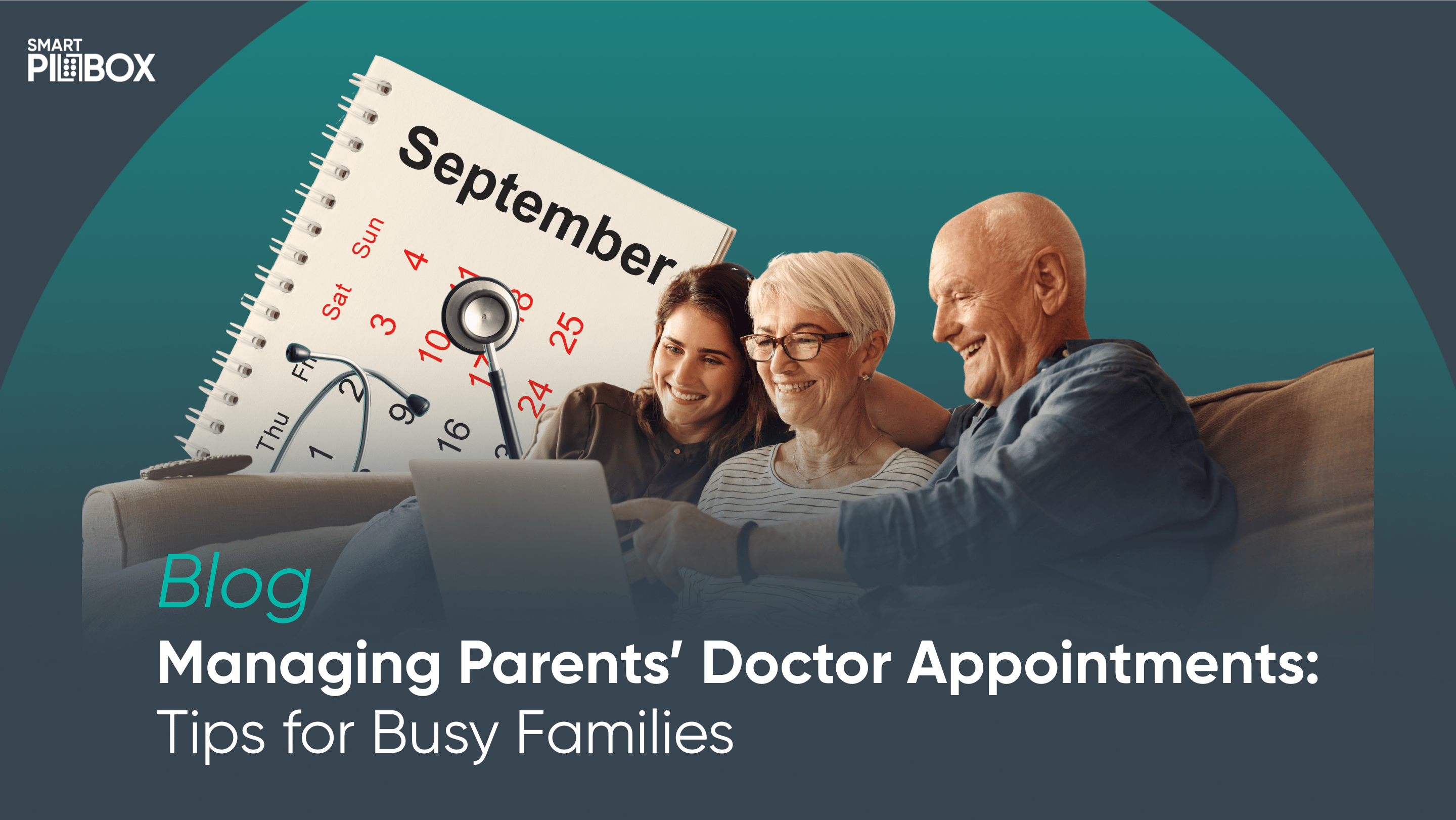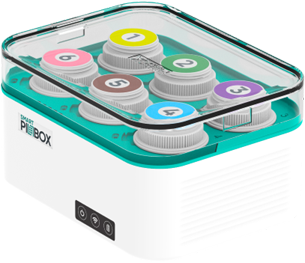Why Patients Forget Meds and What You Can Do About It

Picture this. It is 9 p.m., and your mom’s pillbox still has the little pink tablet sitting there untouched. You gently remind her, and she says, “Oh, I thought I already took it.” Or maybe you yourself have a prescription that you keep meaning to take, but in the middle of a hectic day, the thought simply slips away.
If this sounds familiar, you are not alone. Forgetting medications is far more common than most people realize. In fact, according to the World Health Organization, nearly 50 percent of patients with chronic conditions do not take their medications as prescribed (WHO). That means missed doses, skipped pills, and inconsistent routines are happening everywhere, from busy parents managing blood pressure medication to seniors juggling multiple prescriptions.
But here’s the important part. Behind every forgotten dose is a reason. And once you understand those reasons, you can do something about it.
Why Do Patients Forget Their Medications?
1. Life Gets Busy
One of the simplest explanations is also the most common. People have busy lives. Between work, family responsibilities, and unexpected distractions, it is easy for a pill to slip through the cracks. A single missed dose can quickly turn into a pattern when there is no strong routine in place.
2. Too Many Medications at Once
Seniors and people with chronic illnesses often take multiple medications each day. Different pills at different times can feel overwhelming. If you have to remember one in the morning, one with meals, and two at night, there is a good chance something will be forgotten.
3. Side Effects and Frustration
Sometimes people skip their medications not because they forgot, but because they felt uncomfortable after taking them. Nausea, fatigue, or other side effects can make patients hesitant. Over time, hesitation can become a habit.
4. Feeling “Better” and Thinking It’s No Longer Needed
A very human reason for forgetting medications is simply believing they are no longer necessary. For example, someone taking antibiotics may stop midway because their symptoms improve. Or a patient with high blood pressure may stop medication after readings look good. The danger here is that the underlying condition has not gone away.
5. Memory Decline in Older Adults
For seniors, memory lapses are a natural part of aging. Forgetting whether a dose was taken is one of the most common struggles family caregivers see. This is where confusion turns into risk—because double-dosing or skipping entirely can both be harmful.
6. Emotional and Mental Health Barriers
Depression, stress, or anxiety can also interfere with medication adherence. When someone is already struggling emotionally, staying organized and consistent becomes harder.
Why It Matters More Than You Think
Missing medications is not just an inconvenience. It can affect health outcomes, cause hospital readmissions, and even increase healthcare costs.
- A patient with diabetes who misses insulin doses may face dangerous spikes in blood sugar.
- Someone with high blood pressure who forgets medication may be at risk of a stroke.
- Even something as routine as missing cholesterol medication can have long-term consequences.
For pharmacies and providers, this means more complications to manage. For families, it means added worry. And for patients, it can mean a loss of independence or a decline in quality of life.
What You Can Do About It
The good news is that there are practical, compassionate solutions to help patients stay on track. The goal is not just to prevent missed doses, but to build confidence and create routines that feel natural instead of burdensome.
1. Build Strong Daily Routines
The simplest approach is often the most powerful. Tie medication times to daily habits like brushing teeth, making coffee, or going to bed. This creates an anchor that makes the routine easier to remember.
2. Use Visual Cues and Pillboxes
A simple pillbox can be a game-changer. When you see empty compartments, you know the dose was taken. When the tablet is still there, you know it was not. Today’s smart pillboxes go even further, sending reminders and even alerting caregivers when a dose is missed.
3. Embrace Technology
Apps like MyPillPal are making adherence more manageable. With customizable reminders, digital tracking, and caregiver monitoring, patients no longer have to rely on memory alone. For families, this provides peace of mind, knowing that loved ones are supported.
4. Involve Caregivers and Family Members
Medication management should not fall on one person’s shoulders. Family caregivers can help by setting up reminders, checking schedules, and keeping a simple log. In many households, teamwork makes all the difference.
5. Keep Medications Visible and Organized
Placing pill bottles in a visible, consistent spot can act as a reminder. Organization also reduces the confusion that often leads to skipped or double doses.
6. Talk Openly With Doctors
Patients should feel comfortable telling their doctors about side effects or challenges with adherence. Sometimes a different medication schedule, or even an alternate prescription, can make things easier.
A Closer Look at Smart Solutions
Let’s be real. Most people do not want to be reminded by a nagging alarm or a worried phone call. That is why newer tools are designed to be less intrusive and more supportive.
The MyPillPal App, for example, works like a digital companion. It is more than just a pill reminder app. It becomes a system that tracks habits, helps families stay informed, and integrates with the Smart Pillbox device for those who want a complete solution.
Imagine this. Your dad is supposed to take his evening blood pressure pill at 8 p.m. The Smart Pillbox beeps gently, the app records when he opens the compartment, and if he forgets, you get a notification on your phone. Suddenly, what used to be a daily stress becomes a simple, seamless part of life.
Turning Forgetfulness Into Confidence
At the heart of this issue is something bigger than just taking pills. It is about giving patients confidence, families peace of mind, and caregivers support.
Every small action matters. Building routines, using tools like the MyPillPal App, and creating systems with smart devices can turn forgetfulness into consistency.
And remember, this is not about perfection. It is about progress. Even if one dose is missed, having a reliable system makes it easier to get back on track without guilt or fear.
The Bottom Line
People forget medications for many reasons—busy schedules, too many prescriptions, side effects, or memory decline. But behind each reason lies an opportunity for a solution.
With the right tools like the Smart Pillbox Device and apps like MyPillPal, habits, and support, patients can move from uncertainty to confidence. Families can breathe easier knowing there is a safety net. And providers can see better outcomes when adherence improves.
If you or someone you love struggles with keeping up with medications, know that you are not alone. Start small, build routines, and lean on tools designed to help.
Because at the end of the day, medications are not just about treatment. They are about giving people the chance to live healthier, more independent lives. And forgetting a pill should never stand in the way of that.
👉 Download the MyPillPal App today!
MyPillPal for IOS | MyPillPal for Android



